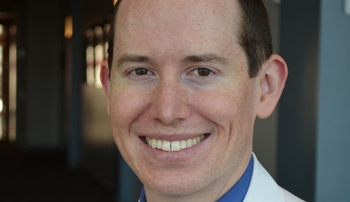Today, Michael Carter and 13 other members of the College of Medicine’s first Enhanced Medical Education Tracks (EMET) cohort will present their capstone projects (See sidebar).
The EMET program lets select medical students perform in-depth studies of interdisciplinary fields while they also complete the required medical school curriculum. The tracks challenge students and address specific topics in greater depth than is available through the required curriculum.
 |
Michael Carter |
Describe your experience with the EMET and your capstone project?
Midway through my first year of medical school, my EMET advisers and I decided to perform a systematic review and meta-analysis of the effect of total shoulder replacement surgery on health-related quality of life. It was challenging but ultimately rewarding. We produced a manuscript that was accepted for publication in late 2011 by the Journal of Bone and Joint Surgery and my abstract was presented at the American College of Rheumatology 2010 Annual Scientific Meeting.
How much extra work was the EMET and how did it work in conjunction with your medical training?
It was significant, averaging about four hours per week across the middle three years of med school. However, my advisers understood my test schedule and I rarely had to work the week of a core exam.
How has this experience benefitted you?
The experience helped me understand the process behind a systematic review and/or meta-analysis. I was surprised by the lack of quality of some of the meta-analyses that I reviewed. People can obscure all kinds of faulty assumptions with fancy mathematical methods and you would only know this by being current on a field’s information. In that way, the project also taught me that constant reading is required to keep up in any field.
What would you tell an incoming student who considers the EMET path?
Take on an EMET only if you are very comfortable with the additional workload. It is called the “Enhanced Medical Education Track” for a reason! However, it will teach you volumes and provide additional skills to make you a competent doctor in the information age. It also adds considerably to your residency application and gives you valuable topics to discuss at residency interviews.
My Father had both shoulders replaced. I have had five shoulder operation. After Dad's surgeries he didn't have pain but he didn't have much movement.
My surgeries one shoulder was better the other is still painful but better movement .
Hope this systematic review improves shoulder surgeries.
Impressive! Michael Carter has a great future and we are blessed!
A great aunt knows this! Ruth